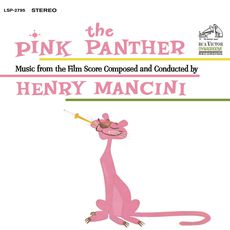“You are the hippest of cats − and the most sensitive of composers”. That’s how Audrey Hepburn concluded her letter to Henry Mancini after the release of Blake Edwards’ famous film, Breakfast at Tiffany's; (1961). If there’s one composer who’s gifted with heightened sensitivity, it definitely him - the son of Italian immigrants born in Cleveland in 1924, who died in Los Angeles in 1994. To experience it for yourself, all you need to do is curl up in the delicate lyricism of the title song of the aforementioned movie, Moon River, the soft and sophisticated tracks from Blake Edwards’ The Party (1968), or even the snide and melancholic stripping of the Inspector Clouseau Theme in The Pink Panther Strikes Again, by the same director, which came out in 1976.
With these few examples, one can appreciate the far-reaching impact of the Edwards/Mancini tandem in the history of film soundtracks, starting as early as 1958 with the TV show Peter Gunn. Both men met the year before: at that time Mancini was no longer signed with Universal Studio anymore (where he was hired in 1951 by Joseph Gerhenson as an arranger and composer) but, as he was randomly strolling by the studio’s hair salon one day, he bumped into Edwards who asked him to compose for this detective series. The classy and jazzy soundtrack to Peter Gunn became a golden record and was nominated for two Grammy Awards. It even became the first big sales success in the history of original soundtracks. The duo worked together again on another series, Mister Lucky in 1959, for which Mancini tried to move away from the formula that worked on Peter Gunn: in addition to an extremely sophisticated string melody, he also relied on two organists with a concise and energetic style – Wild Bill Davis and Buddy Cole.
Create a free account to keep reading




